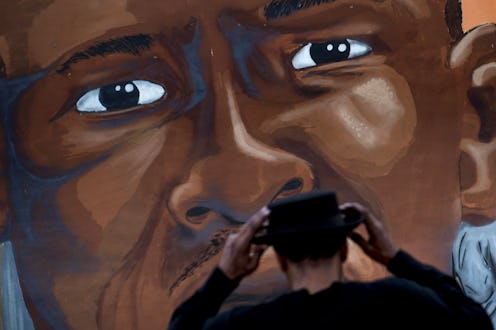The Pew Research Center released a new Social & Demographic Trends report Monday, revealing a stark — though unsurprising — difference between how black and white Americans perceive race and inequality. According to the report, 43 percent of black people surveyed were skeptical that necessary changes would ever be made to ensure racial equality for black individuals in the United States.
Compare this to only 11 percent of white people who were skeptical that these changes would come. Moreover, only 53 percent of white people thought that the U.S. needed to make more changes to achieve equal rights for black Americans, in contrast with 88 percent of black people surveyed. The report goes on to illustrate specific issues on which black and white Americans differ, including how race affects relationships with police, ability to vote, and treatment in the workplace. Black people were overwhelmingly more likely to say that racial discrimination made it difficult for them to achieve equality with white people.
Given all the work that the #BlackLivesMatter network, the #SayHerName campaign, and countless activist organizations have put into achieving racial justice and liberation, it is appalling that half of white people in the U.S. think that there is work left to be done. Considering the frequent killings of unarmed black people by police officers, the ongoing housing discrimination targeting people of color, and the fact that Chicago activists had to hold a hunger strike to protest the closing of a school in a historically black neighborhood, these disparities between how black and white Americans perceive racial inequality simply provide further proof of that inequality.
The report touched on #BlackLivesMatter, too. Sixty-five percent of black people surveyed said they supported BLM, including 41 percent who said they strongly supported it. Meanwhile, 40 percent of white people said they "at least somewhat" supported it, with a greater percentage of white Democrats and white people under 30 voicing support.
All of these data points yield one very important takeaway, which is is that awareness is essential. Black people should not be obligated to educate white people about the injustice they face, so it is the responsibility of white people and non-black people of color to educate one another and themselves. We must also listen to the voices of black people who, like those surveyed, wish to comment on their experiences.
Finally: We cannot be complacent, and we cannot dismiss the fight for racial justice as an issue of the past. If we don't keep all of these things in mind, we cannot successfully advocate for necessary systemic changes.
